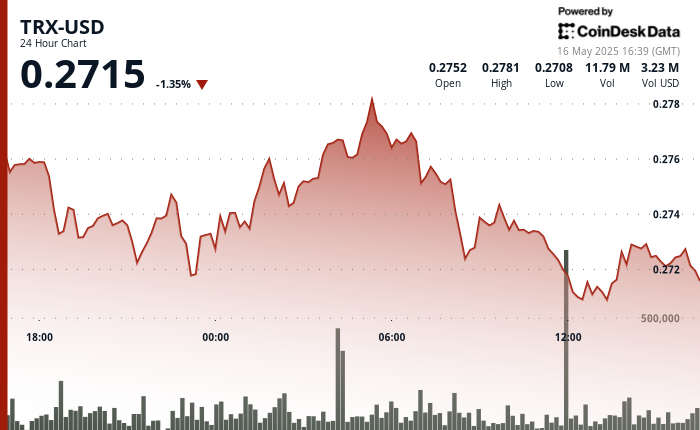Reflections on Those MSTR Bitcoin ‘Earnings’


Reflections on Those MSTR Bitcoin ‘Earnings’
The 'Strategy Model' is good for BTC. But what about the rest of crypto? CoinDesk Indices’ Andy Baehr has questions.
Contemplating MSTR Bitcoin 'Profits'
Andy Baehr from CoinDesk Indices is pondering the impact of MicroStrategy's (MSTR) latest earnings on the wider cryptocurrency market.
The recent release of MSTR earnings on May 1 stirred curiosity and led to discussions about its significance. While avoiding delving into stock specifics, the focus was broadened to encompass overarching trends. Despite initial skepticism towards MSTR's prominence in pioneering the "bitcoin treasury" framework now emulated by other firms like Metaplanet, questions persist.
Here are a few key points:
1. Reality Check: When it comes to MSTR "earnings" and "price targets," one must acknowledge that these figures are heavily influenced by bitcoin valuation and financial arrangements rather than traditional business metrics. There’s a need for clarity among analysts and commentators.
2. The Name Game: Referring to MicroStrategy simply as Strategy is akin to calling Prince just Prince or Kanye West as Kanye – one has to acknowledge its evolution. It's essential to recognize this transition in nomenclature.

3. Balanced Skepticism: With a colossal market cap primarily supported by substantial bitcoin holdings, there's an air of uncertainty around MSTR's resilience without a backup plan. Should setbacks occur, repercussions might reverberate through the bitcoin domain.
Despite any reservations, certain points stand out:
- MSTR's successful capital mobilization efforts are commendable. - Displaying a robust 36% rise this year compared to bitcoin's modest growth underlines its appeal. - Leveraging stock price volatility effectively positions MSTR for innovative financial strategies. - The issuance of preferred shares such as STRK and STRF has resonated positively with specific investor groups.
MSTR has effectively spearheaded a movement within the realm of corporate treasury management by setting benchmarks that others are following suit. The emergence of leveraged ETFs tied to MSTR and Grayscale’s creation of an ETF tracking companies with significant bitcoin reserves indicates a shifting landscape within the industry.
Furthermore, developments such as Cantor Equity Partners' merger forming Twenty One Capital with substantial bitcoin reserves signify a dynamic trend gaining momentum in financial circles.
MSTR created a movement
Despite Bitcoin’s consistent dominance in discussions due to its store-of-value proposition amidst regulatory shifts, it is crucial not to overshadow other potential blockchain assets seeking attention for their unique offerings. Diversification of investment avenues beyond Bitcoin is essential for fostering deeper market understanding and broader participation.

Looking ahead, as we anticipate further evolution in investment opportunities post-2024, investors are encouraged to explore diverse assets beyond Bitcoin-centric narratives for enhanced portfolio resilience and growth prospects moving forward.
But it's only bitcoin at the moment.
US (bitcoin) exceptionalism
Despite the loosening of U.S. regulatory zip-ties on digital assets and the recent flurry of ETF filings, bitcoin still dominates the conversation (it still accounts for about two-thirds of the total cryptocurrency market).
Again, that's fine if we are talking about a store-of-value asset contributing to a corporate treasury otherwise allocated to cash and treasuries. However, the growing number of flavors of bitcoin exposure--leverage, yield, optionality, protection--are taking the place of education about what other blockchain assets hope to deliver, and why it is important to spend more time thinking about the asset class.
If 2024 was bitcoin's "coming out" year, we hope that 2025 gives investors and traders opportunities to think deeper and more broadly, and to implement accordingly. If not, the U.S. crypto investing narrative will start to sound like a "bitcoin maxi," and that feels like leaving money on the table.



